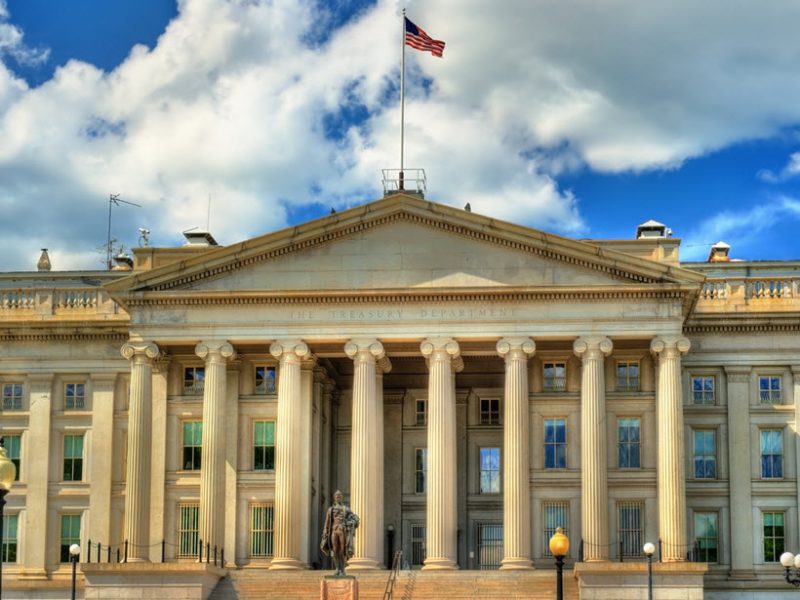The US Treasury Department has stated that crypto miners and staking participants will be exempt from rules requiring digital-asset brokers to report their clients’ transactions to the IRS.
The decision, which was contained in a letter (obtained by Bloomberg News) delivered to a group of senators on Friday, is a significant first step forward for the industry in a struggle that has been developing since the reporting rules were introduced as part of a bipartisan infrastructure bill last year. It was unclear if staking would come under the IRS’s requirements.
Treasury Assistant Secretary for Legislative Affairs Jonathan Davidson stated in a letter that “ancillary parties who cannot get access to information that is useful to the IRS are not intended to be captured by the reporting requirements for brokers.” This statement indicates that people that authenticate crypto transactions through mining or staking, as well as software and hardware vendors, will be able to evade the obligations.
The broker label is significant because it will compel companies to gather and report extensive information about their customers, such as names and addresses, gross sales revenues, and any financial gains or losses. The mining sector claims that certain groups, such as miners and people staking their tokens, lack access to such information, making compliance difficult, if not impossible.
New Staking and Mining Regulations
Treasury plans to produce new regulations reflecting its thinking on the broker definition in the future, according to Davidson. Senators such as Virginia Democrat Mark Warner and Ohio Republican Rob Portman have expressed support for the department’s position in the past.
Executives at crypto businesses including Block Inc. (previously Square Inc.) and Coinbase Global Inc., as well as industry associations like the Blockchain Association and Coin Center, had expressed alarm about the Treasury’s explanation in regards to staking. This new development may bring some clarification to their concerns.
Since then, the onus of clarifying the reporting obligations in regards to staking has gone to the Treasury Department, which is responsible for interpreting the legislation through regulations.
Treasury is still reviewing additional concerns about staking, including “the extent to which other firms in the digital asset market, including as centralized exchanges and those sometimes labeled as decentralized exchanges and peer-to-peer exchanges, should be recognized as brokers,” according to Davidson.
Staking has grown in popularity in part due to the incentive-based nature of cryptocurrency, where many new coins and blockchains compete for validators by promising exorbitant annual returns in the form of new coins. According to crypto researcher Messari and tracker Staking Rewards, more than 70% of all tokens released on numerous chains — including Solana, Binance Smart Chain, and Cardano, among them — were staked late last year.





